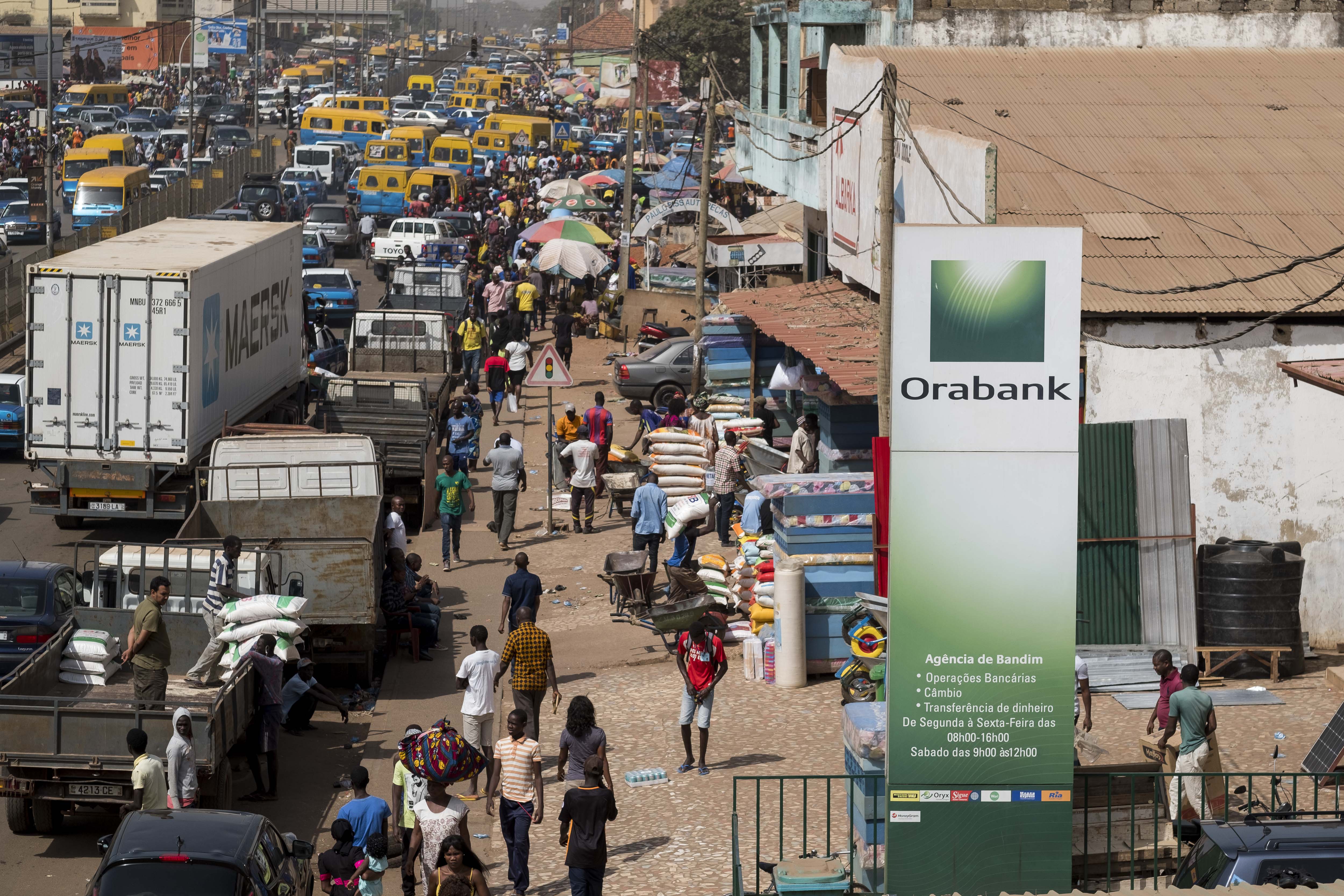First published by ISS Today
More than three months after the second round of presidential elections on 29 December 2019, Guinea-Bissau is sinking into political deadlock. A return to politics by certain figures from the army threatens stability in the country and the region. Mediation and better-coordinated action by the international community are needed.
The door was opened to military interference by the lack of goodwill and failure of political and institutional stakeholders in Guinea-Bissau to look beyond their own short-term interests. The muted reaction by international actors involved in stabilising the country was also a contributing factor.
Umaro Sissoco Embaló, declared the winner of the elections by the National Electoral Commission, organised his own inauguration, even though the Supreme Court still hasn’t passed a definitive judgment on the appeal lodged by former prime minister Domingos Simões Pereira.
Embaló took office as president and installed a new government led by Nuno Gomes Nabiam as prime minister, after dismissing the government of Aristides Gomes. Embaló is supported by his predecessor, former president José Mário Vaz, and the military hierarchy.
The post-election problems stem from the August 2015 crisis triggered by the sacking of Pereira as prime minister by then-president Vaz. Pereira is also president of the powerful African Party for the Independence of Guinea and Cape Verde (PAIGC), so the crisis revolves around control of the PAIGC and political power in Guinea-Bissau.
Pereira has kept the upper hand and the dissident group – Vaz supporters – were expelled from the PAIGC. They created the Movement for Democratic Change – G15 (MADEM-G15) in 2018.
Mediation efforts led by the Economic Community of West African States (Ecowas) resulted in the 2016 Conakry Agreement. But this failed to ease tensions between the two factions. After the March 2019 legislative elections, conflict intensified, particularly around the nomination of office bearers of the National People’s Assembly. Embaló became the MADEM candidate and opposed Pereira in the December 2019 presidential elections.
These elections were held at a time when the future of the leaders of the PAIGC and MADEM, and their support among the army and civil society, were at stake. This situation foreshadowed conditions facing the country today.
Since the April 2012 coup d’état, Ecowas has been the key player in Guinea-Bissau’s stabilisation process. The regional body almost single-handedly succeeded in putting in place a political transition. It sent a diplomatic and military mission tasked with ensuring the security of institutions and supporting defence and security sector reform. When the 2015 crisis started, Ecowas initiated mediation that resulted in the signing of the Conakry Agreement.
By contrast, Ecowas’ lack of coherence in managing today’s post-election crisis has weakened its position. By acknowledging the results of the second round of presidential elections and congratulating Embaló in its 22 January statement – despite the electoral dispute not yet being clarified by the Supreme Court – Ecowas even seemed to be pressuring the Supreme Court.
This not only weakened the country’s highest court, which also serves as the Constitutional Court, but made managing the electoral dispute harder. The controversy that followed regarding the role of the court and the electoral commission in voting processes has opened these two bodies to interference.
Ecowas’s contradictory positions in managing the electoral dispute also revealed deep divisions in the regional organisation. The agendas of certain states would appear to have been prioritised above regional ones. While the Ecowas Commission considers Embaló’s inauguration to have taken place “beyond legal and constitutional frameworks,” his presidency has been recognised by Senegal, Nigeria and Niger.
This situation has created unease in Ecowas and the international community. The latter refuses to endorse this “power grab” that seems to bring certain military players, who are under United Nations sanctions, back into the political game.
The army has often played a determining political role in Guinea-Bissau. It is responsible for several coups, the last being in April 2012. Since then it hasn’t interfered in the country’s politics. The army’s Chief of Staff Biagui Nantam has repeatedly said soldiers are to remain “outside of political quarrels”. However current events undermine this neutrality.
The return to politics of certain military figures with controversial reputations is a major risk. It threatens the civil-military balance that is vital for the proper functioning of institutions.
Conflicts between the main political stakeholders, their civilian supporters and the army fuel instability in Guinea-Bissau. The continuing crisis and state paralysis since 2015 have allowed the military to enter the political stage, and the effect of this move should not be underestimated.
Constructive national dialogue is needed but this requires political and military leaders to recognise their role in the worsening crisis. Given the divisions within Ecowas, the African Union should coordinate an expanded high-level mission to Guinea-Bissau to try to normalise the situation. The regional and international communities should harmonise their positions to prevent Guinea-Bissau becoming another hotbed of violence in an already unstable region. DM
Paulin Maurice Toupane is a senior researcher, ISS Regional Office for West Africa, the Sahel and the Lake Chad Basin.
This article was first published in the ISS Peace and Security Council Report.
This article is more than 5 years old
Africa
Could military interference derail peace prospects in Guinea-Bissau?
The return to politics of certain military figures with controversial reputations is a major risk. By Paulin Maurice Toupane.




